
Opening Insights: Not Good Enough
Commerce is what we do as a society;
the economy is how we measure what we do.
RICHARD JORGENSEN, Ph.D. (hc)
Today, now more than ever, a great need exists for individuals to have meaningful and fulfilling employment.
Employees in the American labor force have ceased to be content with what they do. The grass is greener somewhere else and that is where they are going. Also, it doesn't pay to work.
The inflated unemployment benefits from the COVID-19 stimulus attempts have disincentivized many from going back to work. Why go to work if it pays more to not go to work? This policy has been a huge contributor to the destruction of small business in America.
The COVID-19 stimulus adjustments to unemployment benefits have raised the bar and challenged employee compensation for working. This has raised the cost of goods sold (and the cost of everything else), therefor amplifying and accelerating inflation even further.
Prices are driven not by supply and demand, but by greed. Greed (What's in it for me? / How much can I get?) amplifies entitlement. We are experiencing culturally driven inflation, rooted in greed, which is devaluing everything.
The antidote for this cultural decay is a process that integrates what we do with its valuation on a physical and a cultural level. We must reexamine our incentive to work. Why do we do it?
It must begin with intention of: "Do what you love, so you can love what you do." With clarity of our intentions in place, we must then examine what motivates us to take action. Without that, then we're just working for money, and will sell our loyalty to the highest bidder.
- To reverse this cultural decay our primary motivation for action (commerce) must be:
- Passion
- Purpose
- Skill
- Wisdom of Fairness
- Compensation based upon benefit received by the giver
- Compensation based upon benefit received by the receiver
- Compensation based upon benefit received as a result of the intrinsic value of the whole (this follows the principles of Plato's Republic)
- To implement this focus on value-based commerce requires guiding and shepherding collective groups with a common goal so they may take responsibility and be accountable for developing an Employee Empowered Culture
The tools to implement this are introduced in the Co-Lab™ Research and publishing blog, Employee Empowered Co-Lab™: Followship-Leadership, and outlined in the Create Employee-Owned Cultures eMod eBook™.
From: Employee Empowered Co-Lab™: Followship-Leadership
Studies have shown that job satisfaction is the most important aspect of our work today. It is valued even more than income.
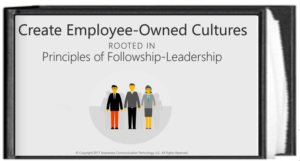
Create Employee-Owned Cultures
The philosophy of value and focus on employee empowered cultures are no longer pie in the sky corporate feel-good slogans, or lofty unachievable goals, but are absolutely essential in order to address the realities these times have created.
If unchecked, the continued absence of passion, purpose, skill, and wisdom, as it relates to individuals' incentive to work, will continue to destroy capitalism, free-enterprise, the free market... and freedom itself.
This reality is evident in the widespread reluctance of Americans to go back to work post-pandemic, their laser focus on obtaining personal wealth, and their lack of interest in contributing to something greater than themselves.
It is clear that a great need exists for individuals to have meaningful and fulfilling employment that takes them beyond a focus on money, to reengage in a life path rooted in passion, purpose, skill, and wisdom.
People are chasing money and more for themselves and this only compounds the effects of the cultural decay resulting from the short-term measures taken to address the COVID-19 pandemic. An article published by Washington Examiner outlines aspects of this destruction.
The following article was published by Washington Examiner, bringing "the best in breaking news and analysis on politics." It was written by Zachary Halaschak, Economics Reporter for Washington Examiner.
Informational Insights: They Are Leaving
Workers have been quitting their jobs and finding new employers in droves as the pandemic abates and life returns to normal.
After rebounding to pre-COVID-19 levels last year, the rate of people quitting their jobs has rocketed in recent months in a shift some are referring to as the “Great Resignation.” In April, at the peak of the pandemic (and at the trough of economic activity), about 2.1 million people quit each month, according to the Bureau of Labor Statistics. Exactly one year later, that figure nearly doubled, with April 2021 shattering records from even before the pandemic.
Nick Bunker, who leads North American economic research at the Indeed Hiring Lab, told the Washington Examiner the high quits rate is a sign of how strong the labor market has been for people with a job.
Given apparent shortages in labor, employers have turned to hiking wages and offering competitive bonuses to attract and retain employees. Bunker said some people are seeing the urgency in which employers want to find workers and are taking the opportunity to search out jobs with higher wages, better schedules, and other upgrades.
“Maybe their employer looks around and says, ‘Oh, there’s a stronger need for me to give a raise now than in the past because I know there’s more options out there for the employee,’” he said of situations in which companies might be fearful of losing workers to other businesses.
Wages are not the only change. There are a variety of aspects people might care more about now than before the COVID-19 pandemic, according to Bunker. For example, working remotely might be a major factor given some people have adjusted to working from home.
Rachel Greszler, an economics research fellow at the Heritage Foundation, also emphasized to the Washington Examiner that in addition to wages, people are looking for flexibility when seeking a job. She pointed out some scenarios in which employees might end up working four-day work weeks or a hybrid model working some days in the office and others from where they please.
“The environment that’s out there is really a workers’ market,” Greszler said. “They are the ones that have the upper hand right now.”
The impact of the Great Resignation is seen not only by economists but also by staffing companies working directly with job seekers and employers. Amy Glaser, senior vice president and outsourcing lead for staffing company Adecco, said her company knew from the start job market recovery would not be linear and that it would be bumpy.
She told the Washington Examiner Adecco is seeing “really intense” pressure on wages. Sign-on bonuses and completion bonuses are an increasingly attractive way for employers to snare employees.
Bunker said a major aspect of the Great Resignation is still an unknown in whether the workers quitting their jobs are primarily remaining in the same industry and moving to another company or moving into different career paths. He said there isn’t recent data on industry switching available.
“We don’t know right now. That’s one of the big questions,” he said during an interview.
Glaser suggested some employees, especially in the leisure and hospitality industry, might have used their time off during the pandemic to seek opportunities in a different industry.
Because so many workers were without jobs for extended periods due to government-imposed COVID-19 restrictions, many got new certifications and upskilled in a new career field, so they did not necessarily have to return to their previous jobs, she explained.
In addition to the push for higher wages and better working environments, Heritage economist Greszler placed some of the blame for the high quits rate on the federal government’s supercharged unemployment pay, which stacks on top of state unemployment insurance and can provide a comfortable bumper for someone who might be more discerning in choosing a job.
Greszler said once the federal unemployment benefits sunset in early September, economists will get a better read of where the economy is at “without all of this artificial stuff being pumped in there.”
While shifts within the workplace have been largely positive for workers, including higher wages, Greszler also pointed out the United States is experiencing high inflation. Depending on how long it lasts, wage gains could be eaten away by higher prices.
But will when the Great Resignation end? Bunker said the jury is still out, although economists are watching the data closely for any changes.
“I do think there is a possibility that this comes down a little bit, but we’ll just have to wait and see,” he said.
https://www.washingtonexaminer.com/news/great-resignation-haunts-employers-trying-recover-pandemic
This article was published on July 20, 2021 by WASHINTON EXAMINER: The 'Great Resignation' haunts employers trying to recover from pandemic
Possibilities for Consideration: A Power Too Great
To stand against the immense power behind the technology, internet and financial organizations in charge of our government, media and education institutions we must get smarter and do it together.
AwareComm® offers a platform that provides the resources and the guidance to meet this challenge.
It’s not just that we need a solution, in this new environment nobody will trust, everybody is angry, nobody listens, commerce stops, efficiency diminishes, nobody cares.
Our culture consists of perception, attitude, thinking and behavior and we have created a culture now rooted in distrust, fear and anger.
The following models illustrate the psychology of fear and control
being used to force America to its knees.
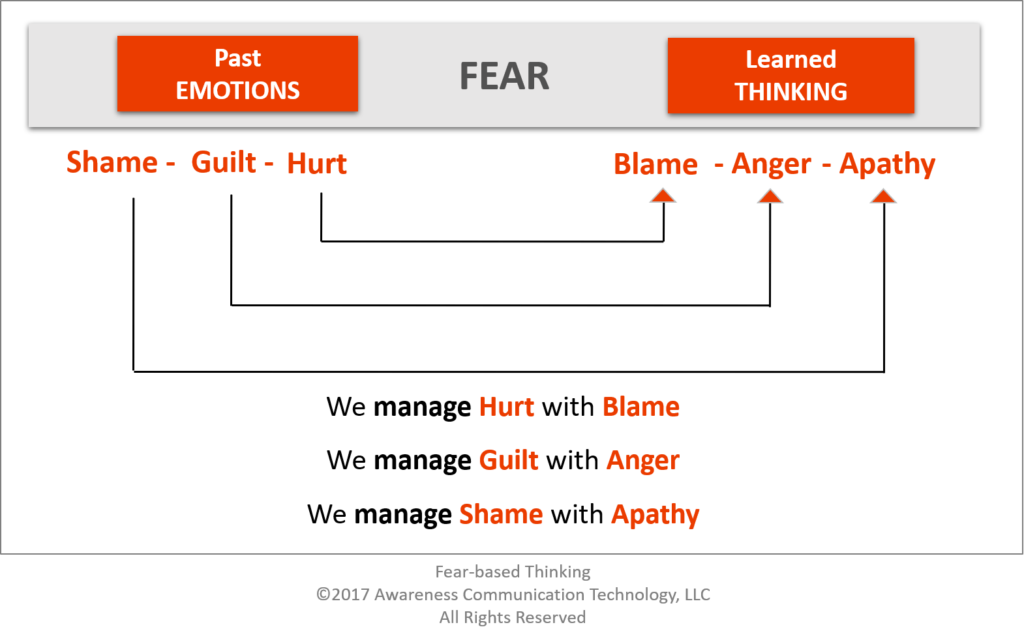
Once people are conditioned emotionally to accept fear as a foundation perception, they become willing candidates to accept the principles of control. Thus, they become slaves to the authority, that being government, propaganda or social media influence.
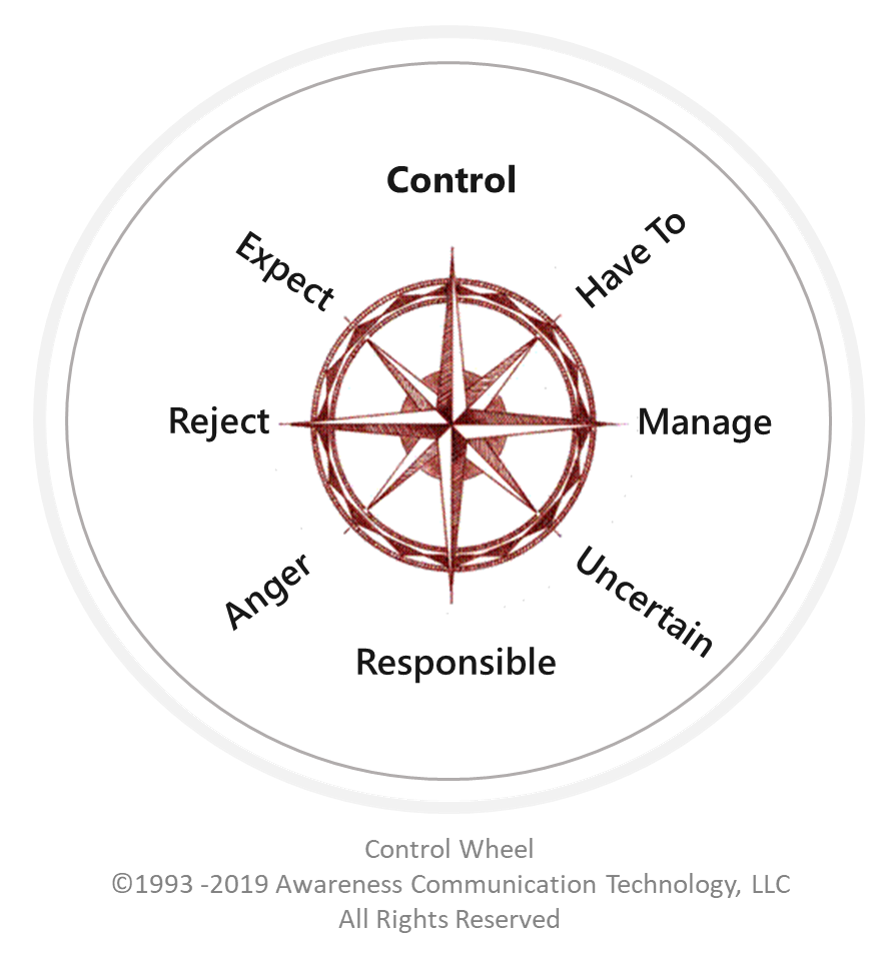
Whatever we do, however we do it, this becomes the basis for how we will build relationships at home, work, worship and play. These models will permeate all dimensions of our lives and must be reversed if our communities and our country are to survive.
The Real Solution: Founded in Spiritual Principles
A real solution, fully developed (tested, proven and paid for), is found in AwareComm's proprietary Adaptive Intelligence (AdI™) algorithm.
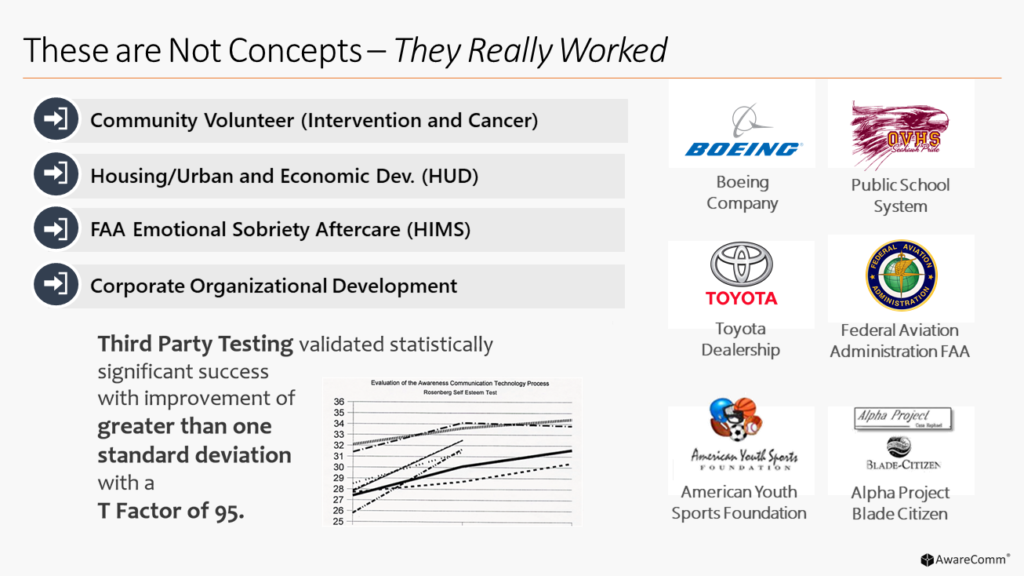
The AdI™ algorithm aligns with the intent of Pope Francis's call for a 'Good Algorithm,' to reverse the damage done by the irresponsible use of technology.
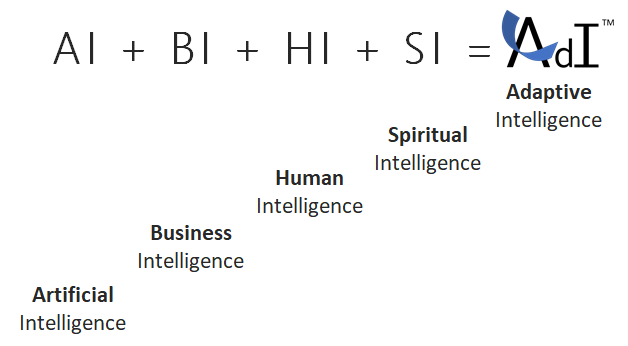
Rebuilding Community Commerce - - Rebuilding the Soul of a Community
AwareComm's AdI™ algorithm is available in a community Collaboration Laboratory (Co-Lab™) Research and ePublishing Institute, where people learn to take charge of their communities by transcending adversity to diversity and solidarity through the application of responsible commerce. Success is assured by applying the principles of Adaptive Intelligence to entrepreneurial thinking using socially responsible capitalism.
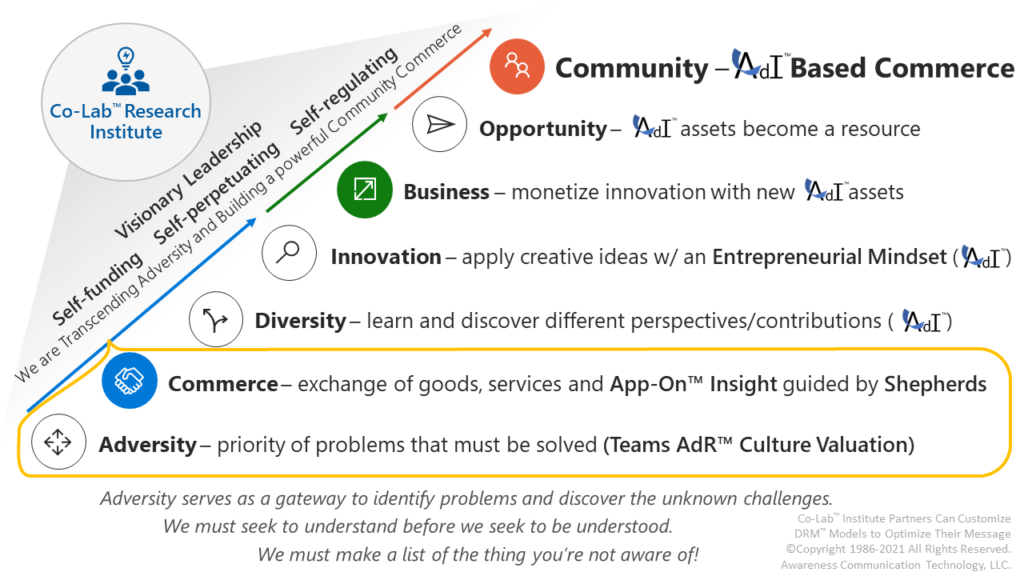
What comes from an established foundation of commerce rooted in spiritual principles and AdI™ is a new business model. This business model, for the application of Socially Responsible Capitalism, is our theme and driving inspiration.
A Co-Lab™ is the implementation mechanism of the result of 30+ years of field research.
Co-Labs™ create an environment conducive to learning, solidarity and change (old ideas are more quickly learned and new ideas are more quickly accepted and implemented).
Our Next Step
The AwareComm® Team is attracting partners in order to awaken in the people a desire for peace and solidarity as a way to fulfill their personal needs.
Through a careful blend of AI + BI + HI + SI the Co-Lab™ Research Institute has the correct balance of technology, methodology, human understanding, spiritual principles and data science to put us on the right track to individual social and cultural empowerment.
Due Diligence classes offer a deeper dive into the Co-Lab™ Research and ePublishing Institute to determine if this philosophy is effective for your community. You will learn:
- The logical power of the AI + BI + HI + SI = AdI™ algorithm for communication and learning
- The communication power of Co-Lab™ Research and ePublishing Institute to provide secure:
- self-funding
- self-perpetuating
- self-regulating networks
- The commerce power of Socially Responsible Capitalism, blending nonprofit and commercial applications
- The application of Social Partnerships, bringing ethical business principles to overcome social challenges
- The joy, satisfaction and pride of taking a role in returning our world to a state of freedom and opportunity - being proud to be a patriot
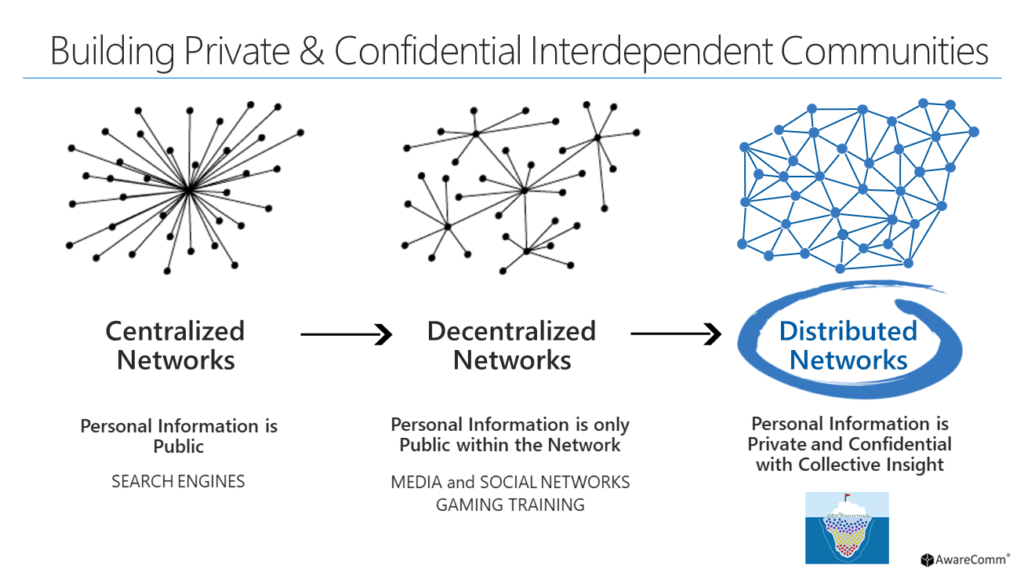
Inviting Potential Partners
For more information
and to receive your invitation to a Due Diligence class
email: SOS@AwareComm.com
